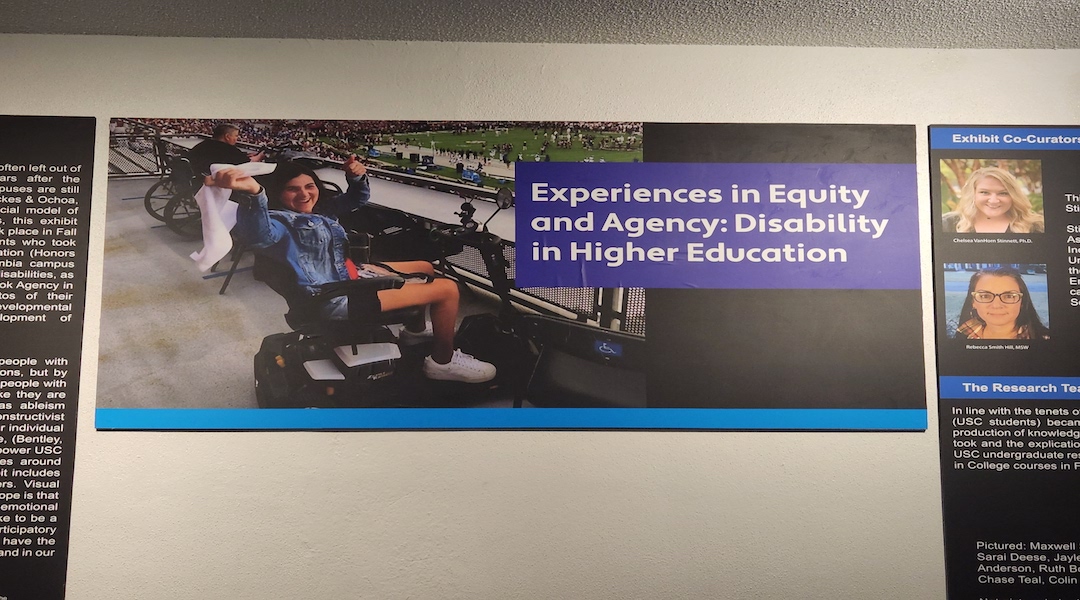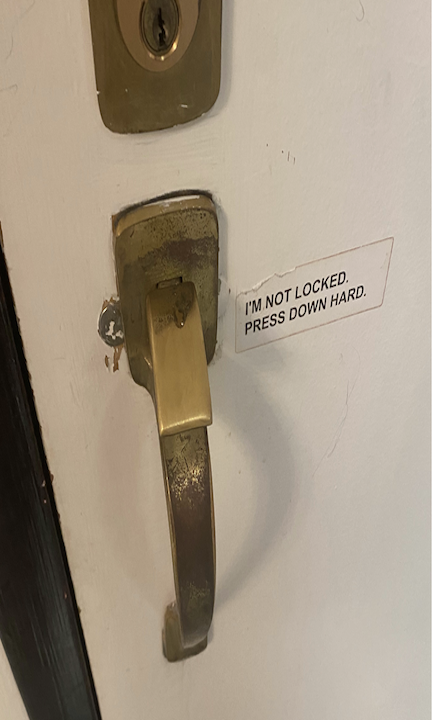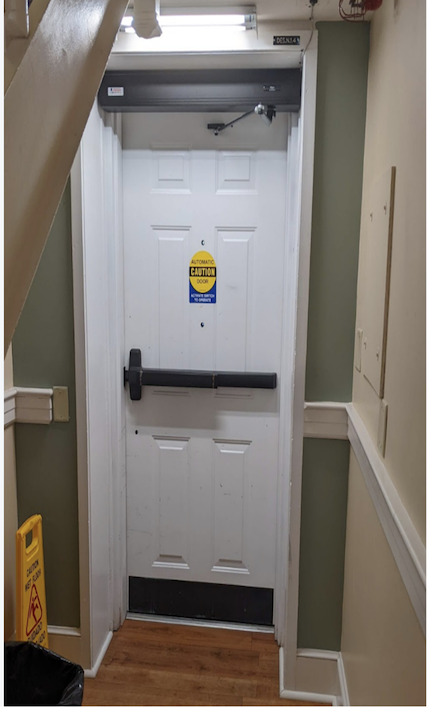The Experiences in Equity and Agency: Disability in Higher Education exhibit displayed in the College of Education last year. (Photo courtesy of Rebecca Smith Hill/Carolina News & Reporter)
The USC Disability in Action program, a class where students highlighted accessibility issues on campus to faculty members, is now the impetus for a new school committee.
D.I.A’s work culminated in an exhibit at the College of Education called Experiences in Equity and Agency: Disability in Higher Education, as well as a presentation to USC policymakers in December 2022.
The way the students did the research allowed students with disabilities to contribute to the research and to be co-researchers.
A year out, some people are frustrated with how long changes are taking. Plans to improve campus access, though, are still in the works.
There also are plans for a follow-up course, according to Co-Instructor of D.I.A Rebecca Smith Hill. This leaves students such as Max Strickland, who was in the class during Fall 2022, relieved since there is more work to be done.
“There are still a lot of structural issues on campus, and we didn’t cover them all,” Strickland said.
Strickland’s outlook on disability accommodations has been formed by their personal experience during mandatory virtual learning when certain issues affected all students and not just those with disabilities.
“Disability is only important when it impacts everybody, and people only act on it once it starts impacting people who are not traditionally disabled,” Strickland said.
One-third of South Carolinians have a disability, according to Mary Alex Kopp, vice president and chief public relations officer of Able SC.
Sarai Deese is a previous D.I.A. student and president of Delta Alpha Pi, an honor society for students registered with the student disability resource center.
Deese contributed to the exhibit a photo of a broken dormitory door labeled as an automatic door but was left with the push buttons hidden and inoperable. The door to her was an example of how “it is not enough to pretend to be accessible,” she said in the exhibit. “The design needs to be usable.”
The frustration with accessibility on USC’s campus is not a new feeling, said USC alumni Kimberly Tissot, president and CEO of Able SC.
“The disabled community is tired,” Tissot said. “We’re tired of having to fight for everything.”
Deese bringing her issue of the dormitory door led to a “snowball effect” where similar doors that were not properly marked around campus started getting fixed, according to SDRC Director Sonia Badesha.
“They did such a remarkable job with it,” Badesha said. “… A lot of the stuff was not new to me, which is sad. But it was great because it was from the student perspective.”
Molly Peirano, a USC assistant vice president who is the coordinator for civil rights and the Title IX/Title IX and American Disabilities Act, said hearing the presentation directly from students led to the creation of the campus facilities accessibility committee.
“I am grateful that we were able to hear those projects and spark some ideas for how we can do things better, because we can always continue to improve and have students more involved,” Peirano said.
The committee should be implemented by January 2024, she said. The committee will be comprised of faculty, students and other facility representatives. One project to accompany the committee is a website, meant to be a central hub for people to access accessibility resources more easily.
“A resource is only as good as knowing about it,” Peirano said. “That’s the vision, but we’re still working on it.”
Able SC’s Tissot said the changes have been too long in the making.
“The college kids on campus, they’ve always had the American Disabilities Act behind them,” Tissot said. “They are younger than the ADA. … I think the college overall just has a lot to do.”
The website is something the entire Carolina community can benefit from, Badesha said.
“It’s not just for students and faculty who are here,” Badesha said. “It’s for parents, and it’s for other folk who are just coming to visit the campus.”
The follow-up D.I.A course is planned for the Fall 2024 semester, Smith Hill said. The course will be a similar setup as the previous class but will take on one of the D.I.A project ideas and continue the expand on what has already been accomplished by the program, she said.
Sarai Deese with her service dog, Archer (Photo by Jack Wolfe/ Carolina News & Reporter)
One exhibit photo from last year shows how some doors around campus are hard to open even for those without disabilities. (Photo courtesy of Rebecca Smith Hill/Carolina News & Reporter)
Sarai Deese’s photo from the exhibit that eventually led to the improvement of other inaccessible doors on USC’s campus (Photo courtesy of Rebecca Smith Hill/Carolina News & Reporter)





